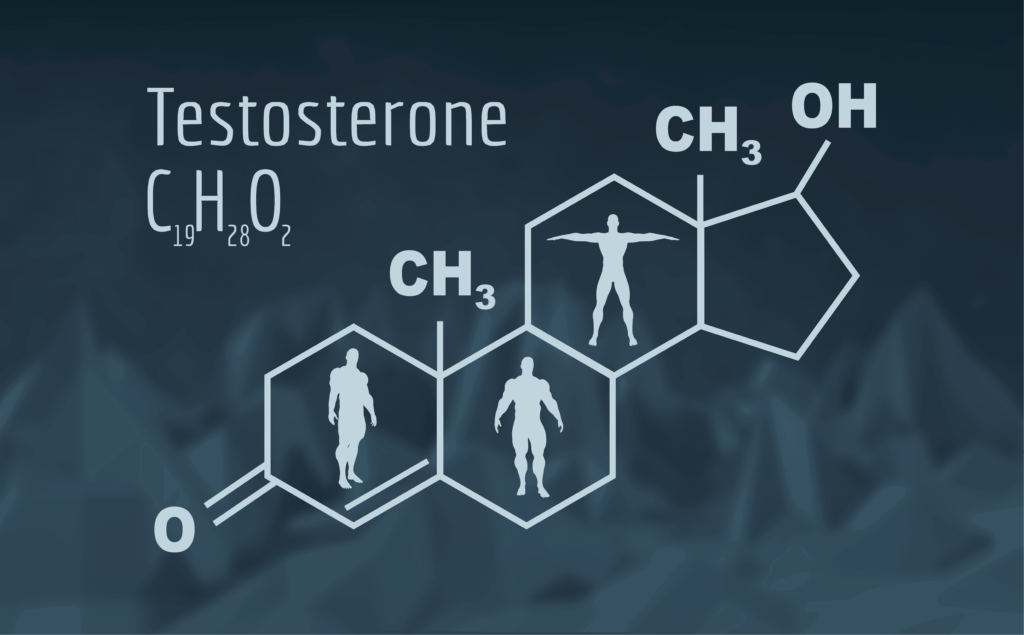Testosterone plays a vital role in growth and development, especially during puberty. Many wonder whether testosterone height growth is possible and if it can increase height in various stages of life. Understanding how testosterone impacts height is crucial to addressing concerns about short stature and whether hormone treatments or supplements can help.
In this article, we’ll explore how testosterone and height growth are related and how testosterone interacts with other growth-related hormones like height growth hormone. We will also examine if boosting testosterone levels can affect height, both in adolescence and adulthood.
Table of Contents
ToggleWhat Is Testosterone And How Does It Impact Growth?
Testosterone is a key hormone responsible for many physical changes during puberty. It is primarily produced in the testes in males and, to a lesser extent, in the ovaries in females. Testosterone is often associated with muscle development, facial hair growth, and deepening of the voice, but it also has a significant impact on height growth during puberty.This hormone works alongside other critical growth hormones to ensure normal development. Testosterone helps stimulate growth hormone for height, particularly during puberty. When testosterone levels increase, they enhance bone growth and muscle mass, leading to visible growth spurts. However, the effects of testosterone on height are mainly limited to the developmental years.
How Do Testosterone And Growth Hormones Work Together?
Testosterone and height growth are closely linked to other hormones, particularly growth hormones like height growth hormone. Growth hormones, which are produced by the pituitary gland, are responsible for stimulating bone growth and increasing overall body size. Testosterone amplifies the effects of these growth hormones, helping individuals reach their potential adult height.Together, testosterone and growth hormones trigger the rapid growth seen during puberty. However, their combined action is only effective during specific developmental windows.
How Does Testosterone Affect Growth During Puberty?
Puberty is the period where testosterone has the most noticeable effect on height growth. As testosterone levels rise, so do the rates of bone and muscle development. During these years, growth plates (also known as epiphyseal plates) remain open, allowing for height increases. Testosterone works with growth hormones to accelerate this process, ensuring that individuals reach their genetic height potential.The surge in testosterone during puberty leads to rapid height gains, typically between ages 12 and 18 for boys. This surge is one of the main drivers of adolescent growth spurts. However, after a certain point, testosterone also signals the closure of growth plates, which stops further height increases.
Why Are Testosterone Levels Important During Puberty?
During puberty, testosterone levels must be sufficient to promote healthy testosterone growth height. If levels are too low, it can lead to delayed or stunted growth, potentially resulting in shorter adult stature. Proper testosterone levels ensure that growth is on track and that the body develops the necessary bone density and muscle mass.However, it’s important to note that while testosterone is crucial for growth during puberty, its effects are more limited once this period ends.
What Are Growth Plates And How Do They Function?
Growth plates are specialized cartilage located at the ends of long bones in children and adolescents. These plates are where bone tissue is added, leading to an increase in height. The process is regulated by a combination of growth hormone for height and testosterone. Once the growth plates close, which typically happens at the end of puberty, no further growth in height is possible.
How Does Testosterone Influence Growth Plate Closure?
While testosterone promotes height growth during puberty, it is also responsible for signaling the end of height increase. As puberty progresses, testosterone gradually causes the growth plates to harden and fuse, which leads to the cessation of further growth. This process typically occurs around the ages of 16 to 18 in males and slightly earlier in females.Once the growth plates close, the potential for additional height is gone. This explains why testosterone’s role in testosterone for height growth is limited to the pre-adulthood stage.
How Do Growth Plates Close And What Does It Mean For Height?
Growth plates close when the cartilage turns into solid bone, a process driven by rising testosterone levels. Once this occurs, bones can no longer lengthen, and height remains fixed. After the growth plates have fused, even increasing testosterone levels will not lead to additional height growth.
Can Testosterone Levels In Adulthood Affect Height?
By the time adulthood is reached, growth plates have closed, which means that changes in testosterone levels have little to no effect on height. While testosterone remains important for maintaining muscle mass, bone density, and overall health, it does not impact testosterone height growth in adults.In adulthood, testosterone levels may still influence physical characteristics, but they no longer affect vertical growth. Other health factors related to bone density or muscle tone may be impacted by testosterone, but adult height is determined by genetics and growth plate closure during puberty.
Why Doesn’t Testosterone Increase Height In Adults?
Since growth plates close after puberty, testosterone height growth is not possible in adults. The effects of testosterone on height are confined to the developmental years when growth plates are still active. Once they have fused, further height increase is biologically impossible, even with an increase in testosterone.
Can Low Testosterone Levels Cause Short Stature?
Low testosterone during the crucial years of puberty can result in delayed or stunted growth. Individuals with significantly lower testosterone levels during adolescence may experience slower height growth, leading to shorter stature as adults. This can occur due to various conditions that affect testosterone production, such as hypogonadism.In these cases, testosterone replacement therapy might be used to correct the hormonal imbalance and promote normal development. However, for adults, addressing low testosterone will not lead to height changes, but it can improve other aspects of physical health.
What’s The Connection Between Low Testosterone And Growth Issues?
There is a clear link between low testosterone height growth issues, particularly during puberty. Low testosterone levels can lead to delayed bone development and slower growth, potentially causing shorter final adult height. Addressing these issues early with hormone therapy can help improve growth outcomes during the critical developmental years.
Do Testosterone Supplements Help You Grow Taller?
There is a common misconception that taking testosterone supplements will result in height growth. However, unless the individual is still in puberty and their growth plates are open, testosterone supplements will not increase height. In cases where testosterone deficiency affects growth, hormone therapy can support normal growth patterns, but it is not a height-enhancing treatment for those past puberty.
Are Testosterone Treatments Effective For Height Increase?
Testosterone treatments are effective in cases of low testosterone height growth in adolescents, helping correct delayed growth when prescribed by a healthcare professional. For adults, however, such treatments do not lead to testosterone growth height as the growth plates have already closed. Hormone therapy’s role in increasing height is confined to specific situations in growing individuals.


